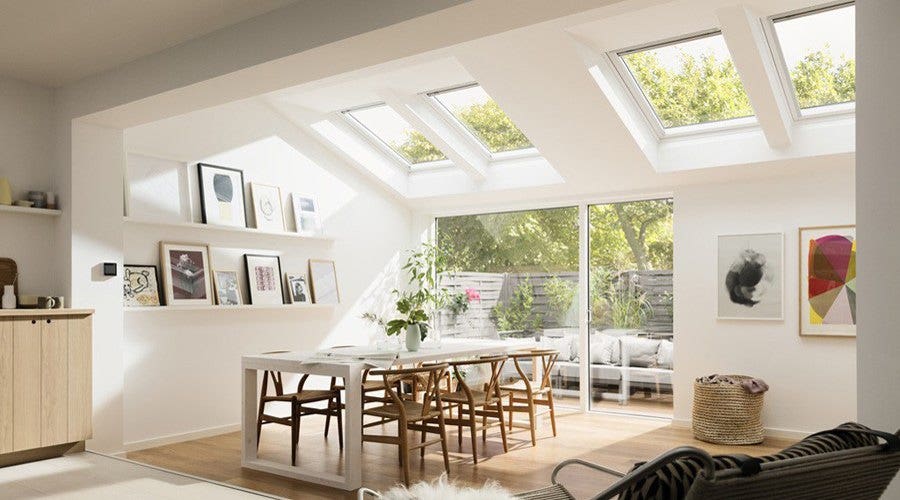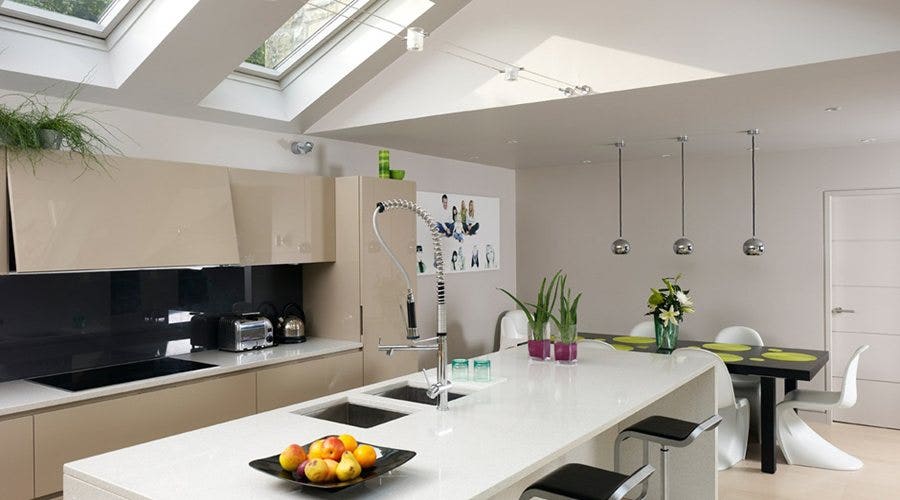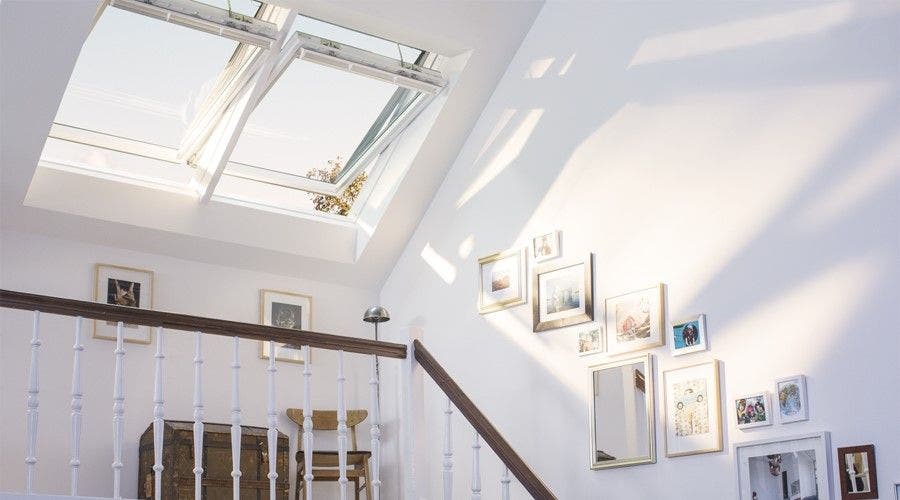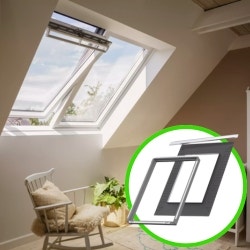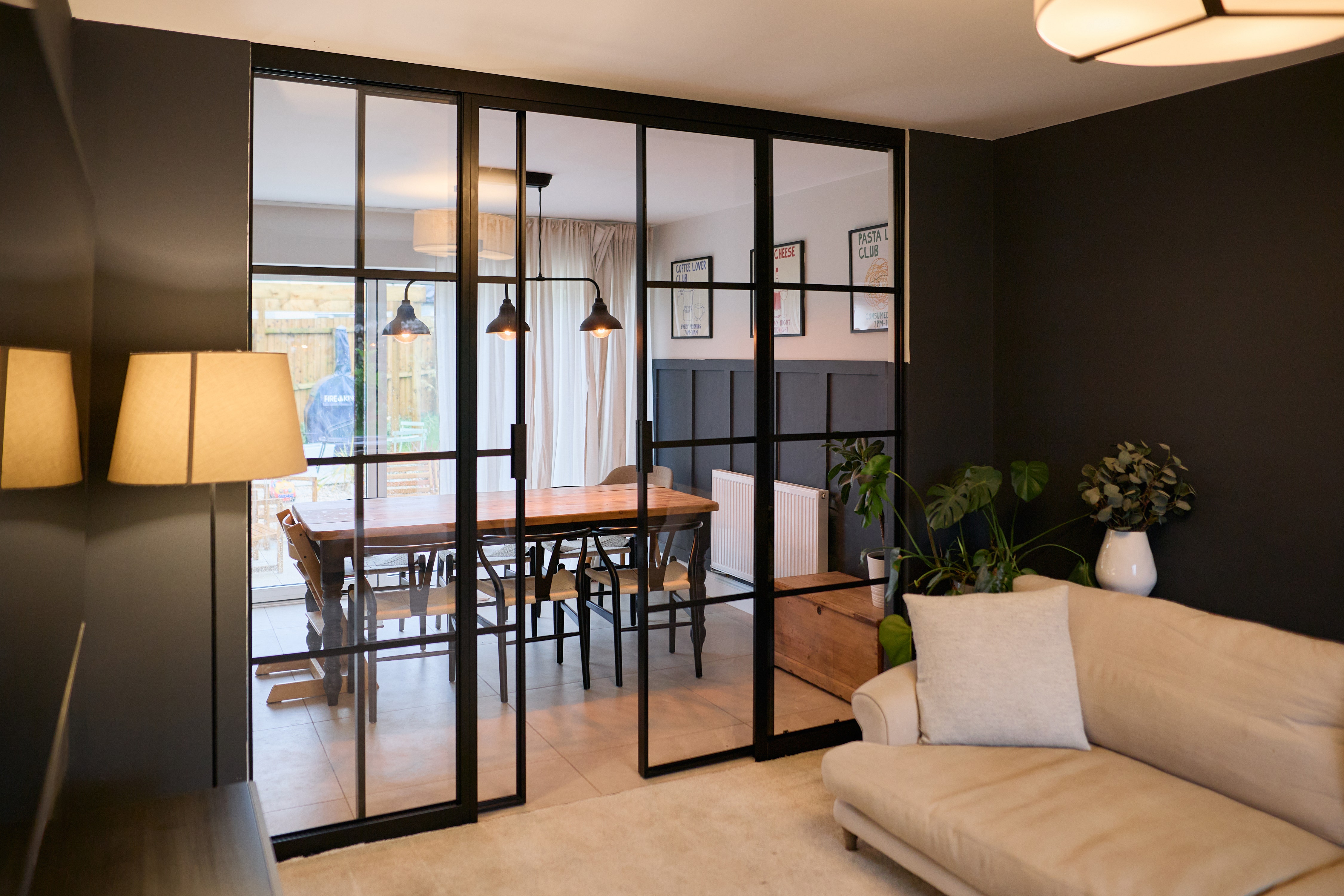How Many Windows do I Need For My Room?
-
 Sterlingbuild
Sterlingbuild - Advice & Guidance
- 28 Jun 2019
- 149views
- Reading time: 3 minutes
How Many Windows do I Need For My Room?
Adding a greater amount of natural light into a new or existing living space is an essential part of any successful
extension or loft conversion design.
By Larry Bohan on 28 May 2019
Alongside increasing space and value, creating a brighter and lighter room is often the
driving factor behind most home improvement projects.
The importance
of daylight to our healthand need for less reliance on artificial lighting has come into sharper focus in recent years
as a result of
alarming findings on the amount of time people are spending indoors.
The most popular and well-known way of achieving a healthy and even flow of daylight at home is through a
combination of vertical and sloped
glazing. Less obvious, however, is knowing how many windows are needed to optimise these levels in order to really feel the benefits.
Here is an overview on best practice for daylighting home extensions and loft conversions, along with a few other ideas on how to turn your new space into the brightest, most welcoming area in the home.
How many Windows do I Need?
Be it a ground floor
extension orloft conversion, the general rule we advise for effective daylighting is that a room's glazing should be equivalent to 15-20% of the whole
floorspace
at a minimum to
ensure daylight hits the whole area.
With lofts, this is achieved most easily by installing rooflights into the existing roof structure.
As long as headspace is no issue, adding roof windows
to a roof that needs no further
alteration
is
the less expensive and time consuming option versus a dormer extension.
A dormer loft extension might
be your next best option if the basic rooflight conversion doesn't offer enough head height or floor space.
Although the same 'floorspace÷5= glazing area required' formula is the same for
extensions, getting daylight right
can be trickier as the level of light provided by
big sliding doors or bifolds can be deceptive in extensions.
It is important to remember that rear extensions
can actually push daylight away from the original building, so complimenting your
vertical glazing with pitched roof windows
or flat
rooflights is key.
Roof windows, like those from the VELUX Group, RoofLITE and ECO+, can
let in as much as twice the daylight as vertical windows of the same size.
Combining pitched and vertical
ensures an even spread of daylight
at different angles, from dawn to dusk.
With North facing extensions, getting this
balance right is even more important as sloped windows can sometimes provide the only effective source of daylight.
This grid by the VELUX Group highlights the glazed area measurements that each VELUX standard sized roof window will provide.
Key
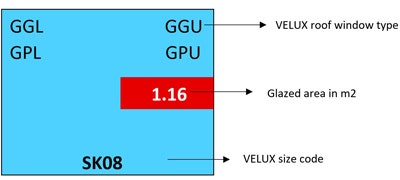

Five Tips for Getting the Most From
Your daylight
Save Money with Fixed Windows
If your
project has already got a sufficient amount of
ventilation provided
by
exterior doors or other vertical glazing, opting for
non opening roof windows or fixed rooflights is
a smart way of filling the space
with daylight while saving a few pounds compared to the cost of manual or electric units.
Use a skylight to Highlight a Feature
By strategically positioning your roof windows or skylights in the roof you can draw people’s attention to a certain spot
or
prioritise an
area
of the room that is most used, for example a dining or play area.
Use Light Reflective Decor
A clever way of making a room even brighter is with white/neutral coloured walls and decorative mirrors.
Adding light-reflective materials will help bounce light around the room, making it even lighter and airier.
Cut Back on Frame
Pick modern rooflight designs with
next to no
frame, such as a contemporary roof lantern,
to ensure there is nothing hindering the pathway of natural light into your extension or your enjoyment of the views up above.
Add Blinds
It might seem obvious, but blinds are a must-have when too much sun starts to become a problem. In loft bedrooms and en-suites they’re near on essential, while suitable
extension rooflights will also
need blinds to reduce glare.

